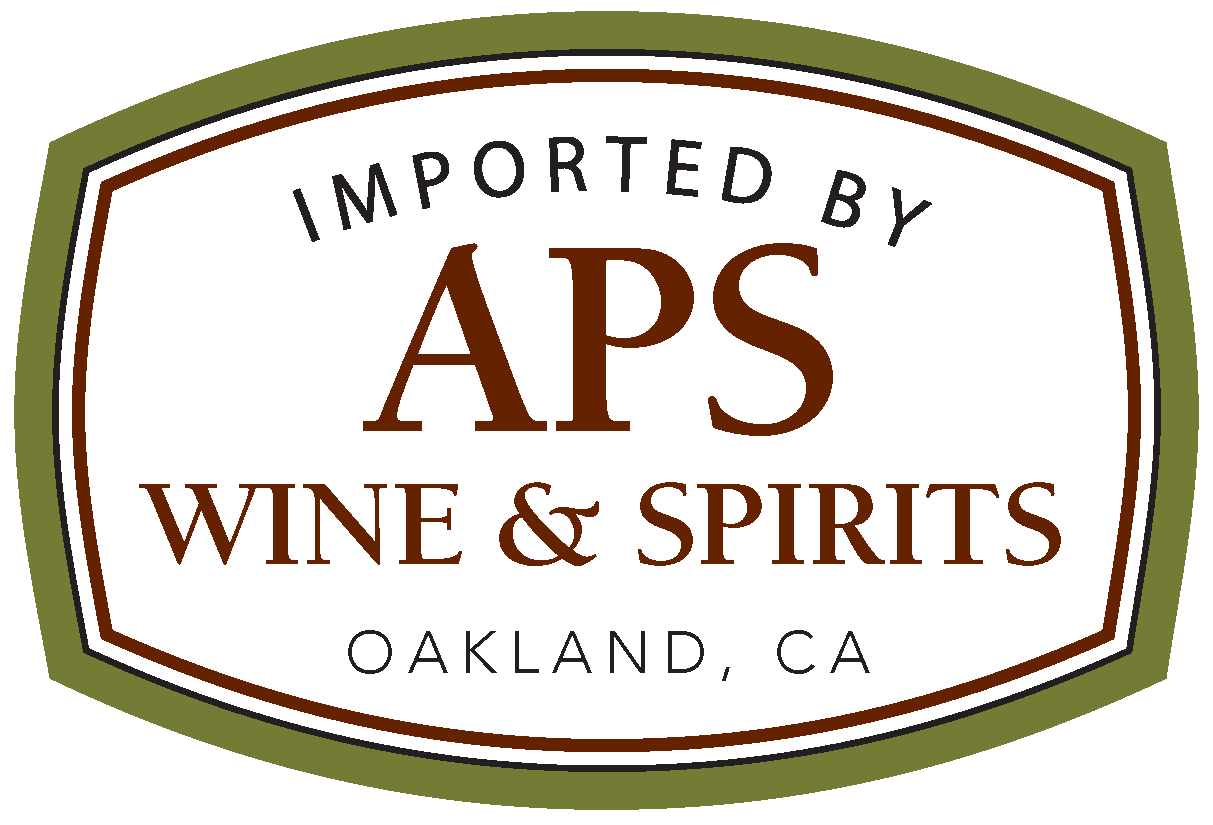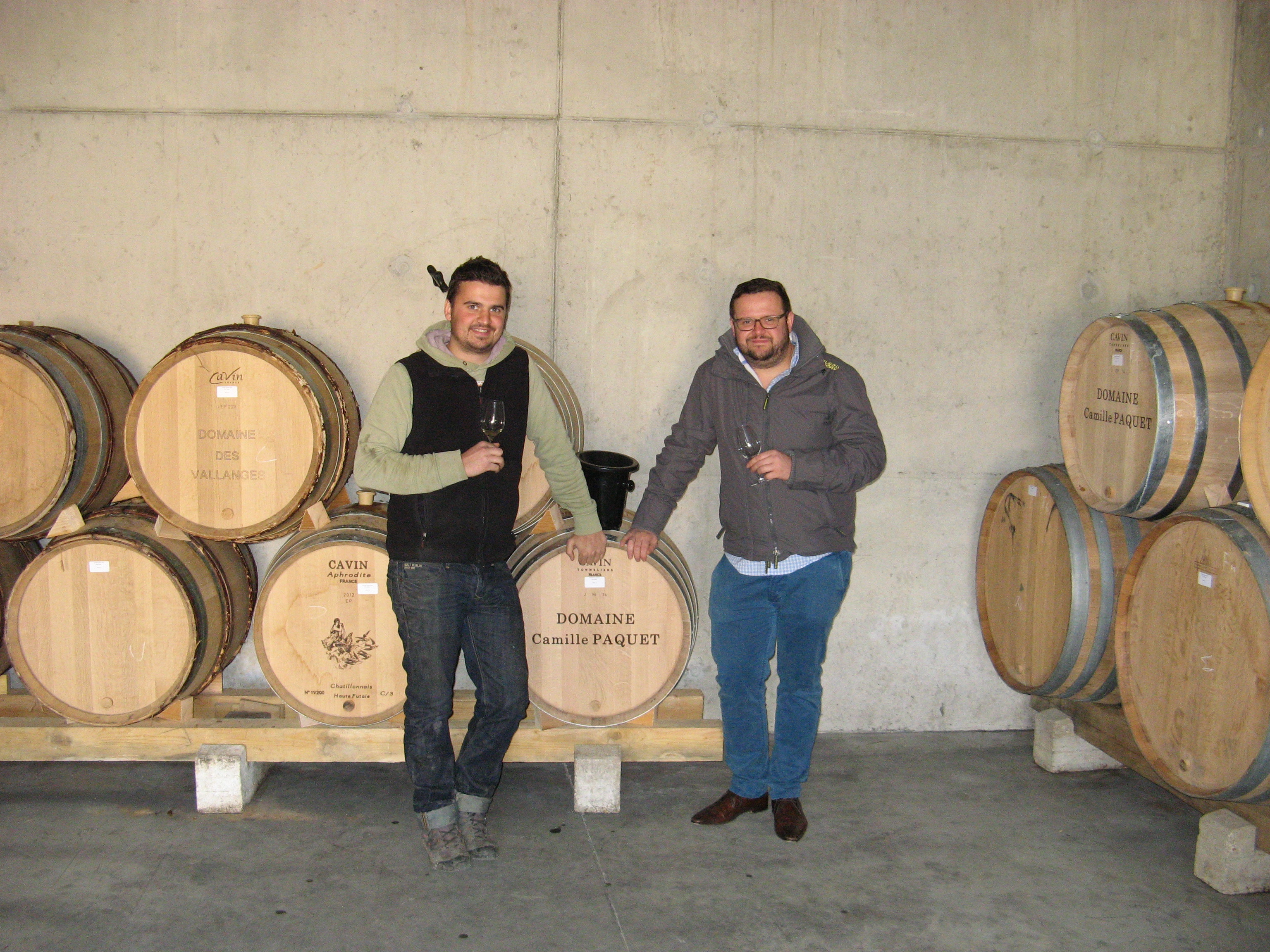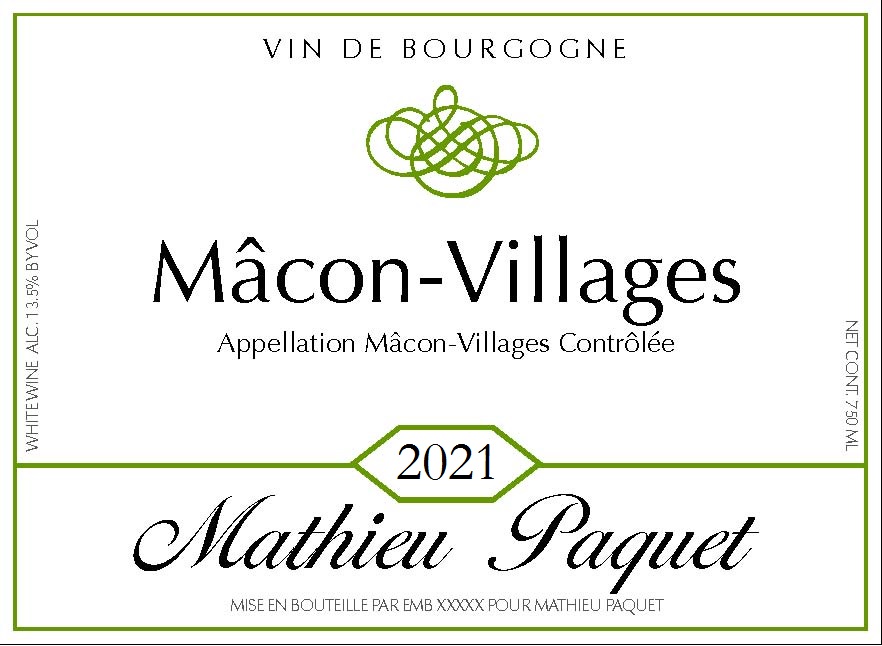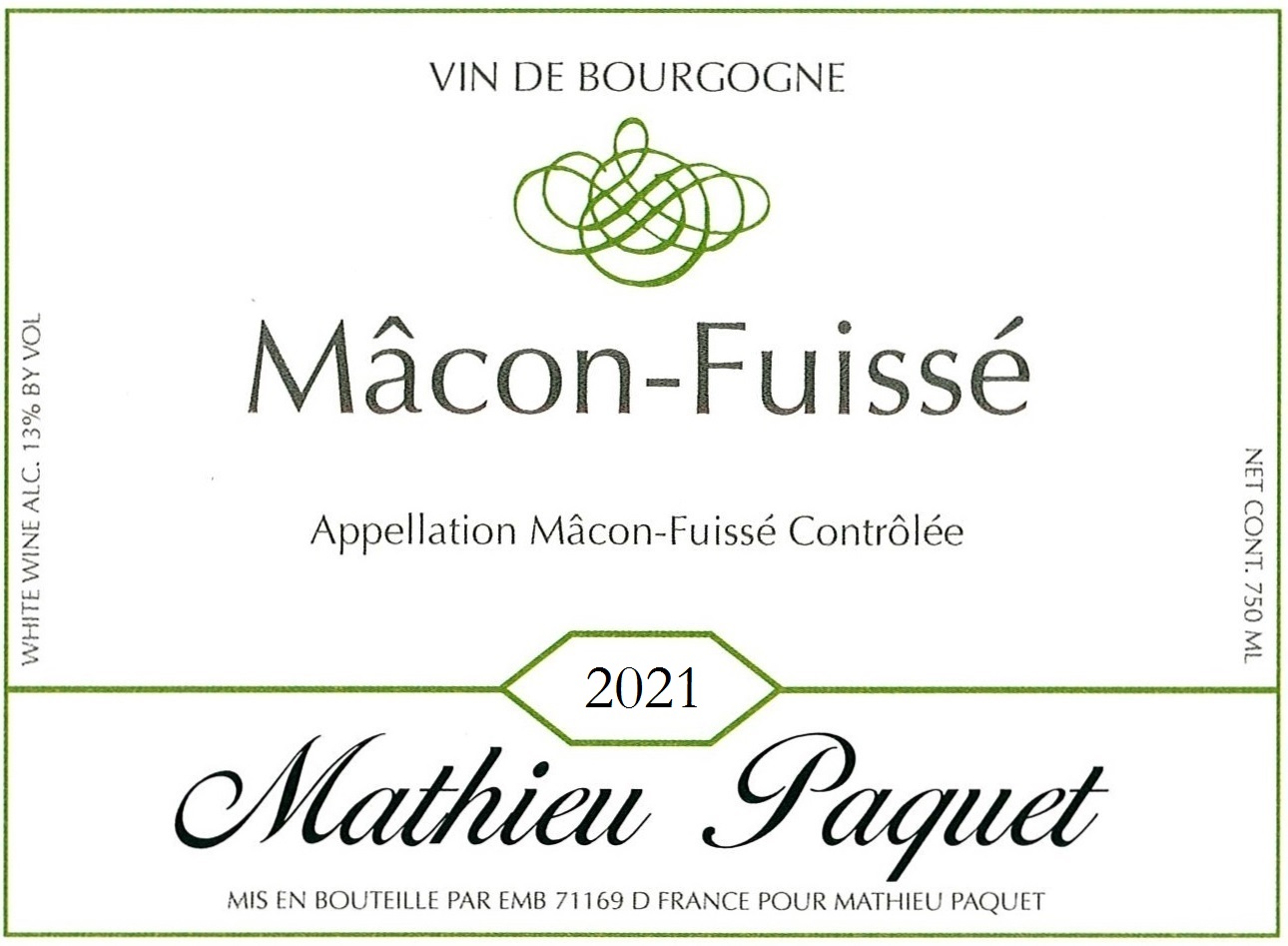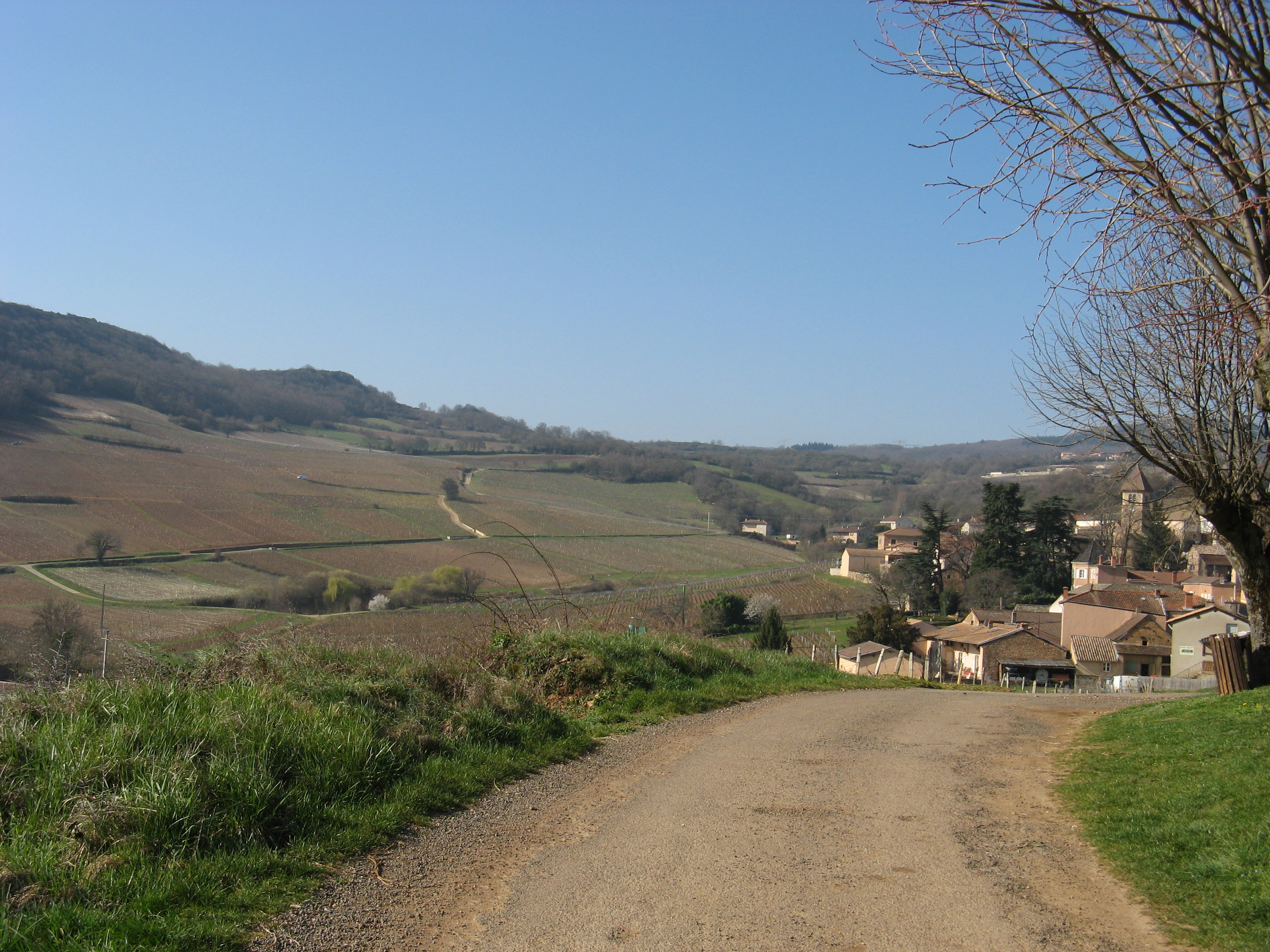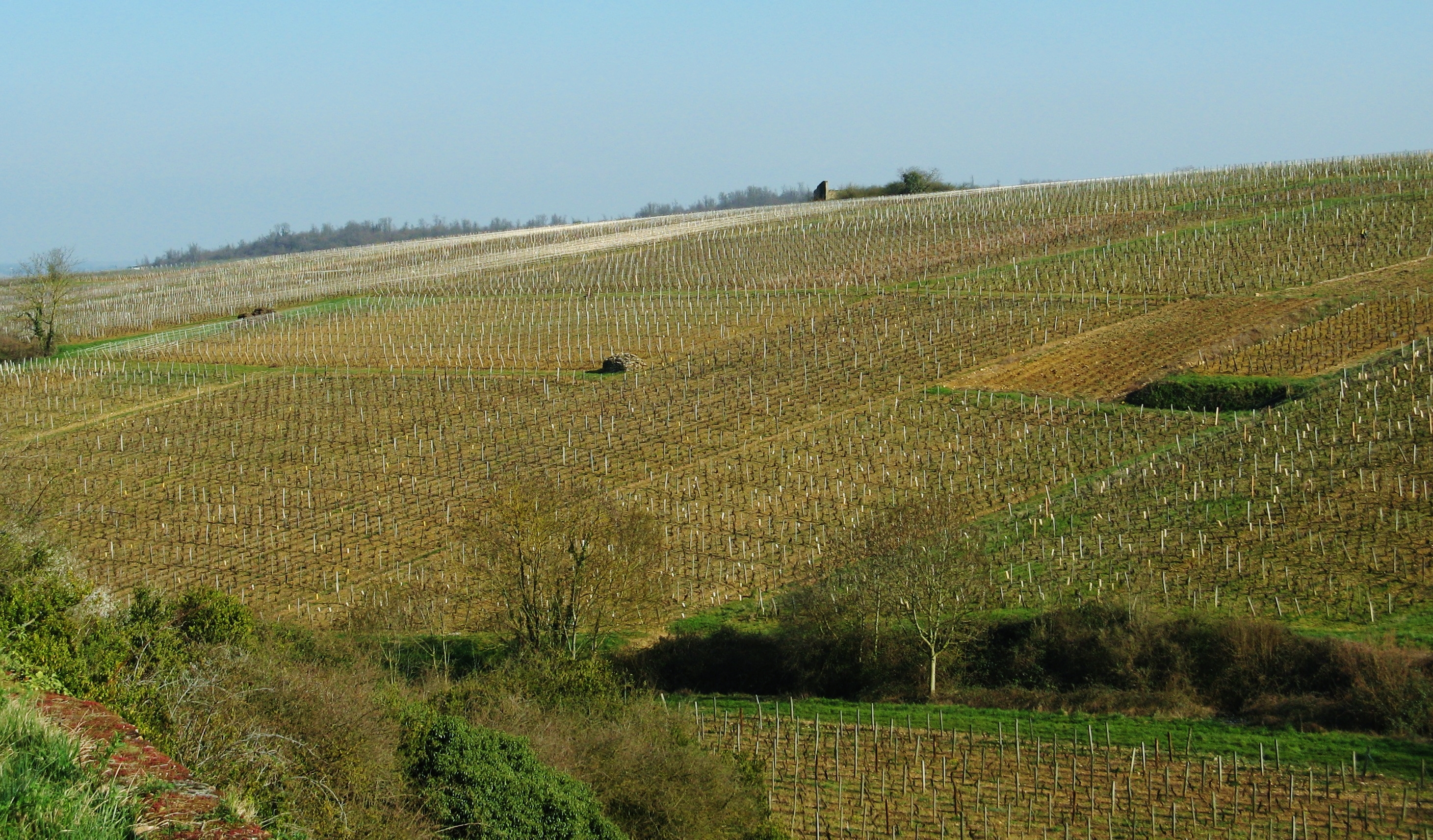BACK TO THE FUTURE MÂCON
We champion estates who farm their own vineyards, but we also champion great farmers who choose to sell their fruit. As purveyors and ambassadors of fine wine, we respect that choice. We respect that great wine is made by great relationships, and sometimes an extra hand, say, or step gets the job done.
Mathieu’s veins are Mâconnais. He’s from Saint-Véran and grew-up at his family’s estate, Domaine des Valanges. Mathieu is not a farmer, but he understands the principles of a healthy cellar and respectful winemaking. Realizing his strength as well as his void, Mathieu made it his mission to support the unsung growers who live, breathe, and farm exceptional terroir. He began this mission in 2011.
A charismatic and jolly character, Mathieu’s ability to befriend growers is genuine. Each year, we work with Mathieu to bottle wines of a clear-cut place and poise. All the wines are made at his family’s estate, never acidified nor wrecked by the passage of heavy filtration or new oak. The Mâconnais has been a constant place of intrigue for Burgundy wine drinkers who seek quality wines at more affordable prices, yet the region has proved it is more than a category of default or second choice. Instead of saying, “Wow, that is a great glass of Mâcon Chardonnay!” we’re are finally saying, “Wow, that is a great glass of White Burgundy.” Fasten your seat belt and get in your time machine… it’s back-to-the-future with Mathieu and the Mâconnais.
Mathieu’s Les Granitiques bottling comes from a patch of pink granite high on the hillside slopes of Lantignie. This is organic Gamay that has been worked for decades by a close friend of the Paquet family. The grapes are pressed whole cluster in an old screw press thanks to the Chateau des Vergers where the wine is made. Fermented on the skins in concrete, then rested for a short while in neutral oak, followed by bottling, which is both unfiltered and unfined, and with minimal sulfur. In 2022, the natural suntrap that is this high-elevation Granitiques vineyard produced wine of unmistakable and singular minerality. There’s a smack of bright red cherry and framboise as soon as you lift the glass to your nose, followed by pink peppercorns and the “granitic” je ne sais quoi that only great Lantignie terroir can deliver. Come see how this single-vineyard, soil-to-glass Gamay Noir delivers both value and true cru Beaujolais character.
100% Chardonnay from the village of Uchizy. Mathieu’s longtime friend, Jean-Michel, is the organic caretaker of these east-facing, well-drained, deep in marl vines. Uchizy is a dark horse, only recognized by natives as prime Chardonnay real estate in the northern Mâconnais. Made with natural yeasts, bladder pressed into steel, and rested in steel, the 2021 is effortlessly buoyant: cold rain over white rock, zest of lemon and the spray of freshly cut green apple. Float-on Chardonnay.
Talk about fine terroir and prime real estate: This 100% Chardonnay hails from Fuisse (population 1,800!), one of the finest communes in the appellation. This vineyard is nestled just west of the Saone river, a very short distance from its sister communes of Viré and Clessé. The soils on this east-facing, gentle slope are comprised of limestone and clay, with ample rock debris, providing superior drainage. The organically-farmed vines, averaging 36 years age, are tended by Mathieu’s longtime friend Jean-Michel, and are severely pruned to limit yields, hand picked, and reflect a completely natural terroir – no spraying or artificial anything. The fruit is bladder pressed into 100% steel then flows by gravity to be finished in cement vats. The bouquet is open and generous, with quartz, minerals, baskets of Meyer lemons and white flowers. The palate is fresh, alive and pure “back-to-the-future” Chardonnay from Burgundy.
In real estate the mantra is location, location, location. The same can be said for the finest wines and spirits…location always matters for the best fruit. Getting your hands on the best fruit, well, that’s another matter. To do that you’ve got to have connections. You need to know who grows the best and who makes the best. Enter Mathieu Paquet. Mathieu is a Mâcon native and the scion of a wine-making family that produces some of the finest Petite White Burgundies you are likely to find. More than that, Mathieu is a true bon vivant and a bit of renaissance man. His tremendous good cheer, love of his native cuisine, and restless curiosity lead him to seek out and connect with the people doing special things in around his home Mâcon. Back in 2018, a friend put a bottle of Crème de Cassis in his hands that just exploded what he thought he knew about the traditional Burgundian liqueur. He had to track down the farmer (a grower-producer) who made this elixir. The connections were made, and lo and behold, Mathieu discovered that his new friend also makes Crème de Framboise and Crème de Pêche de Vigne! We are now proud to debut these unique liqueurs, which will open your mind about just what is possible with fruits beyond the grape.
Crème liqueurs are easy to make, but hard to get right: sugar is sugar, alcohol is alcohol, but fruit is not fruit. With the right fruit you can work wonders; without it, your liqueur will be little more than sweet booze. The general method to make a crème liqueur is to macerate the ripe fruit with high-proof alcohol over a period of months, then add sugar and water, and clarify. That’s it. Clearly, it’s all about the fruit. It is important to note, however, that, in order to let the quality of the fruit shine through, only pure beet sugar and grape alcohol are used. Anything less could introduce foreign flavors to the final liqueur.
The only variety used for Paquet’s sublime Crème de Cassis is Noir de Bourgogne. The Noir de Bourgogne is a rustic and low-yielding variety, requiring little sun and tolerant of the cold, but producing berries with explosive, earthy, juicy flavors and concentrated purple-black color. Grown at 1,400′ on soils of limestone and clay, the word terroir is the right one to use for the site where this fruit grows. We are way beyond commercial farming here. This classic of cocktails and the kitchen cannot be any better.
The raspberry bramble that makes the foundation of Paquet’s Crème de Framboise has a curiously English name for such an extraordinary French fruit: it is the Lloyd George, a very old variety that is acclaimed for its sweet, fruity taste and fragrant scent profile. Fresh, pungent, lifted aromas and all natural fruit intensity beckon for use in a variety of desserts, a perfect framboise coulis, and of course served neat or in cocktails of color and fragrance. A little of this intense and concentrated crème goes a long way.
It is said there may be as many as 120 varieties of bush peaches cultivated throughout Burgundy and the Northern Rhône, where they are called Pêche de Vigne. Unlike commercial peach varieties, they are grown from seed, not grafted. They are often shrubby little runts yielding intensely perfumed fruits that bruise easily, but lose their charm quickly. The key is to get them into your clafoutis or your maceration vessel fast to “fix” their fabulous flavors and aromas. Among the several varieties used here are the prized Charles Ingouf and Belle Angevine. Paquet’s Crème de Pêche de Vigne has a beautiful golden-orange and lustrous color. Its nose is very aromatic with that heady scent that practically shouts, “Summer!”. In the mouth, the fruit explodes, powerful, rich, and without heaviness and just a slight tannic touch giving it fine definition.
Click the pdf to see six exclusive cocktail recipes for Mathieu Paquet’s benchmark Petite Fruit Liqueurs.

It’s an APS tradition that when our vignerons visit the Oakland office, lunch is always In-N-Out Burger, and we’re lucky (or are we?) to have one in our ‘hood. Little do they know, their greatest French fan is Mathieu Paquet. We we like tease him with beefy “Double-Doubles,” and then pretend to get serious and talk wine. We look forward to a long relationship with Mathieu, delicious wines from the Mâconnais, and more fries “well-done.”
